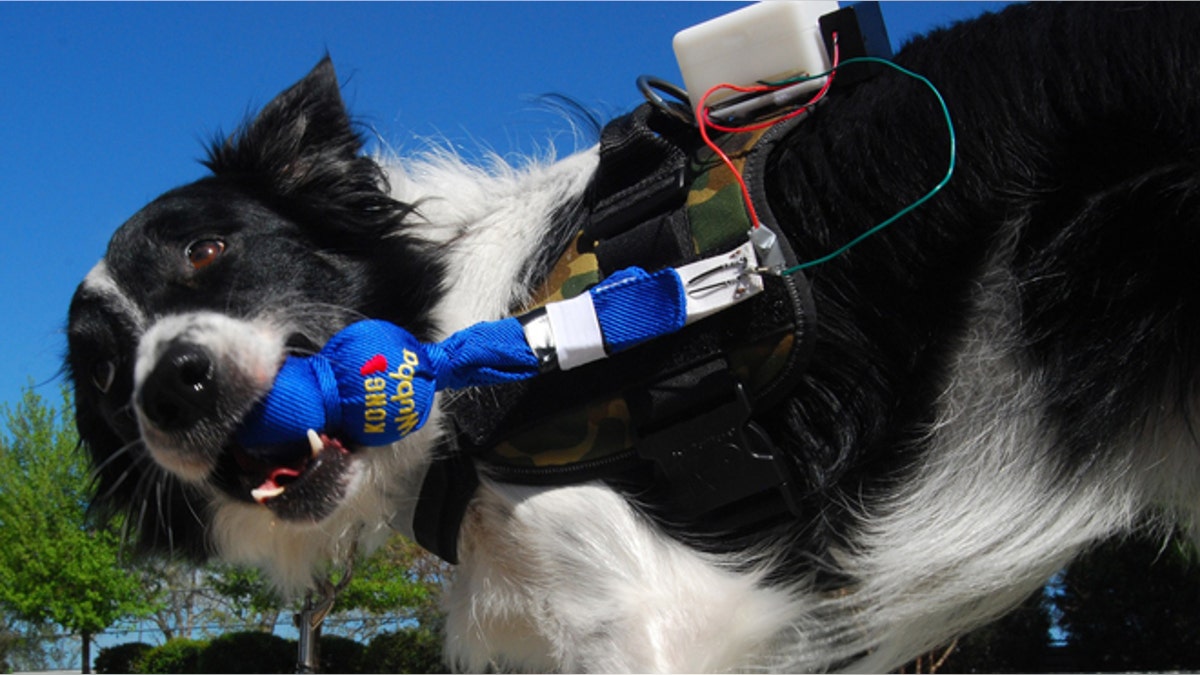
A working dog participates in Georgia Tech’s FIDO project. (Georgia Tech)
Barking is so old school. Futuristic working dogs assisting humans are set to get Google Glass-like tech for communication. Get ready to see what dogs are thinking.
The system is being developed as part of Georgia Institute of Technology’s Facilitating Interactions for Dogs with Occupations (FIDO) project. Associate professor of interactive computing Melody Jackson and research scientist Clint Zeagler are working on the project with contextual computing professor Thad Starner, who also serves as the technical lead on Google Glass. Their goal: better communication between dogs and humans.
PHOTOS: 40 Years of the Cell Phone
Currently working dogs are limited in how they can convey information to their handlers. The FIDO project is testing new systems using its Inter-species Interaction Lab. An early study involving a dog vest with an Arduino microprocessor tested several different sensors that dogs could activate by tugging and biting, MIT Tech Review’s Rachel Metz reported.
The technology has all kinds of life-saving potential. “Military dogs could mark bomb locations and even indicate the type of bomb found, then move to safety, rather than the current practice of lying next to the bomb and barking until the handler arrives, putting both dog and handler at risk,” the researchers explained on Georgia Tech’s site.
RELATED: Dogs Guided Remotely by Stealth System
Just as remarkable, the team envisions connecting the sensors on the dog’s vest to a head-mounted display that people with disabilities could wear. Clint Zeagler described a scenario where a hearing dog detects a tornado siren and touches a sensor on his vest with his nose. That triggers a message to appear on a head-mounted display the human wears, alerting him to head to the basement.
Although the Georgia Institute of Technology doesn’t have an official Google Glass partnership for this project, the high-tech glasses’ voice command and display capabilities certainly seem to have inspired the FIDO team. Animal-computer interaction is only going to get stronger.








































